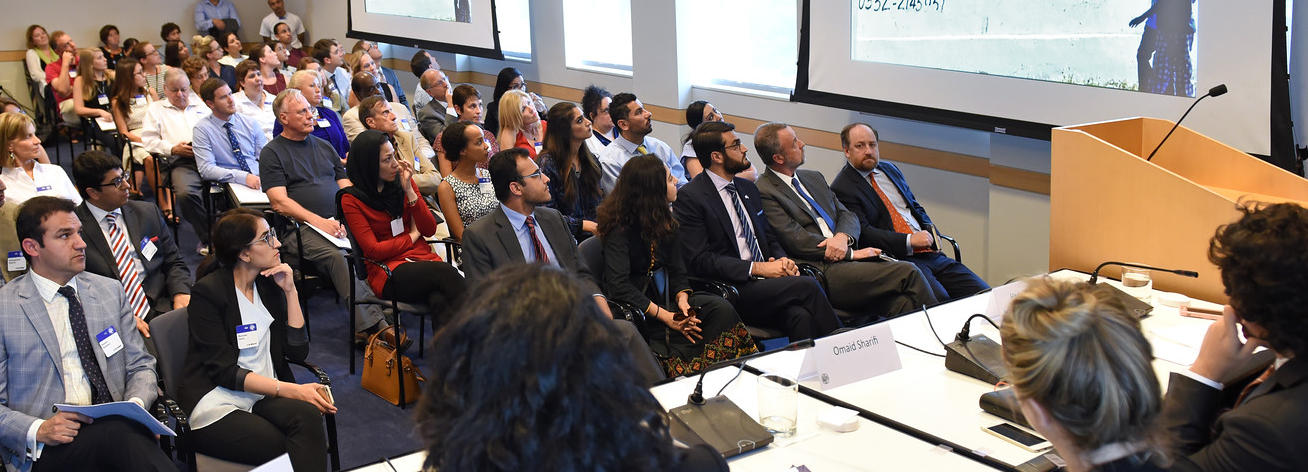Using Art to Wage Peace From Afghanistan to the Mideast
How Grass-Roots Activists Turn Blast Walls and Blight into Public Dialogues for Peace
Read the Event CoverageAmid warfare and violence, grass-roots artists across South Asia and the Middle East are using public, visual art to reclaim public space to promote peaceful social change. Groups such as Afghanistan-based ArtLords and Awareness and Prevention Through Art, which works in the Middle East, are converting blast walls and blighted buildings into murals and other works that prompt discussions in their communities about how to reduce the injustices, social exclusion and other drivers of violent conflict. On July 28, practitioners convened at USIP to discuss how peace advocates can use street art to help build peace.

The panel discussion included Samantha Robison, who has run public art campaigns in the Middle East to help marginalized people in conflict zones win a public voice. Nadia Naviwala has worked in Pakistan to support and evaluate efforts to reclaim public spaces from violent and extremist messaging. With ArtLords, Omaid Sharifi has painted blast walls around Kabul to create anti-corruption murals. The discussion included opening remarks by Afghanistan’s ambassador to the United States, Hamdullah Mohib. Continue the conversation on Twitter with #PeaceArt.
Speakers
Scott Worden, Welcoming Remarks
Director, Afghanistan & Central Asia, U.S. Institute of Peace
H.E. Ambassador Mohib, Opening Remarks
Embassy of the Republic of Afghanistan
Hodei Sultan, Moderator
Senior Program Manager, U.S. Institute of Peace
Omaid Sharifi
ArtLords
Samantha Robison
Awareness & Prevention Through Art
Nadia Naviwala
Woodrow Wilson Center



